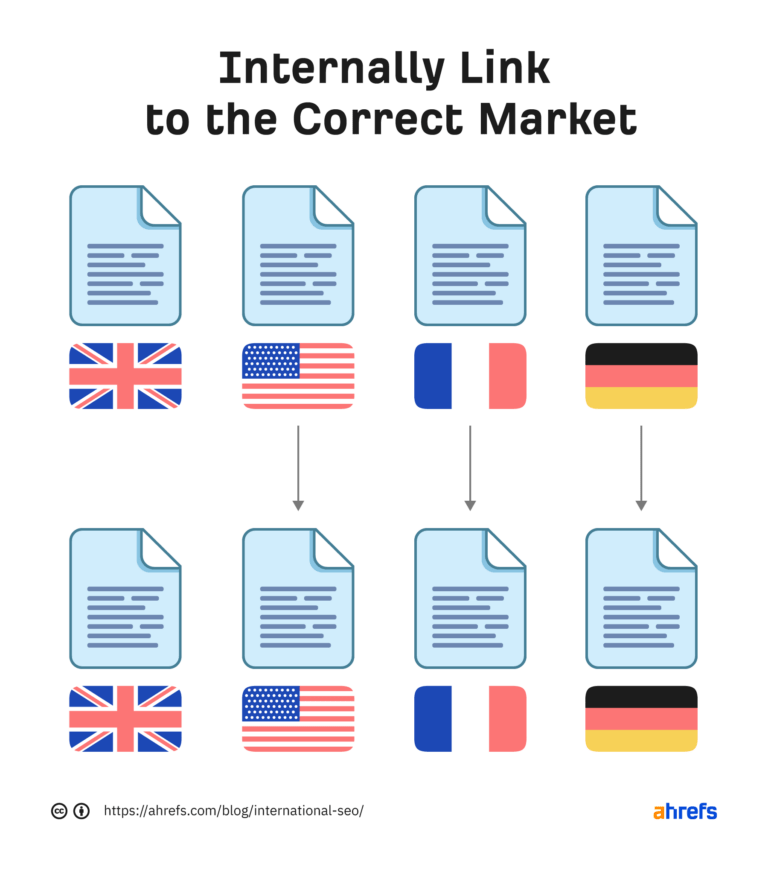Past Boundaries: The Following Frontier of SEO-- International Optimization
Past Boundaries: The Following Frontier of SEO-- International Optimization
Blog Article
Navigating the Digital Landscape: Leveraging International SEO for Cross-Border Success
In today's interconnected digital globe, services are increasingly looking past borders to tap right into worldwide markets. The intricacy of navigating the electronic landscape on a global range demands a nuanced strategy, from understanding the principles of International SEO to applying geotargeting and multilingual keyword phrase techniques.
Comprehending International Search Engine Optimization Basics
Navigating the intricacies of global search engine optimization needs a solid understanding of essential concepts to successfully broaden online presence across boundaries. One vital element of international search engine optimization is understanding the relevance of localization. This entails tailoring internet site material to suit the etymological, cultural, and industrial differences of target audience. Keyword phrases must be not just translated yet also adjusted to reflect exactly how users in various regions search for details.
Additionally, having a clear understanding of geo-targeting is necessary. This includes suggesting to search engines the certain nations or areas a site is targeting. Applying hreflang tags is one way to interact this info, ensuring that the appropriate version of a page shows up in the search results for an individual in a certain location.
Additionally, understanding the influence of local online search engine and social media platforms is crucial for global search engine optimization success. As an example, while Google is dominant in numerous regions, countries like China have their own search engines like Baidu, needing tailored techniques for every platform to maximize online visibility.

Targeting Multilingual Keyword Strategies
Establishing multilingual key phrase techniques is important for properly reaching diverse global audiences and making best use of on the internet visibility throughout various etymological areas. When targeting multilingual keyword methods, it is crucial to carry out detailed research to comprehend the details search terms and expressions used by the target audience in each etymological area. This entails not only translating key phrases yet also thinking about cultural nuances, local languages, and search patterns one-of-a-kind per target audience.
To create a successful multilingual keyword phrase approach, it is very important to focus on importance and search intent. Key words ought to line up with the material on the site and resonate with the cultural context of the target audience. Utilizing tools such as Google Key Phrase Organizer, SEMrush, or Ahrefs can help determine high-performing key words in different languages and examine their search quantity and competition degree.
In addition, monitoring and examining the performance of multilingual keyword phrases consistently is crucial for maximizing and improving the method gradually. By constantly adapting to adjustments in search actions and patterns, companies can improve their on-line exposure and attract even more global web traffic to their internet sites.
Executing Geotargeting and Hreflang Tags
When aiming to boost worldwide SEO approaches, including geotargeting and great site hreflang tags is important for optimizing internet site exposure across various areas. Geotargeting involves customizing content to details places, guaranteeing that customers in different locations get relevant info. By implementing geotargeting, services can enhance their neighborhood search rankings and bring in region-specific traffic.

Optimizing Web Site Structure for Global Presence
To even more boost international Search engine optimization strategies past geotargeting and hreflang tags, optimizing the internet site structure is imperative for accomplishing international visibility and maximizing reach across various areas. A well-structured site not just boosts user experience however additionally facilitates search engine crawlers in comprehending the web content and context of the site.
Furthermore, developing language-specific subdirectories or subdomains can aid search engines supply the best variation of the web site to customers based on their language preferences, even more improving the general customer experience. In addition, optimizing URL structures to include appropriate search phrases and geotargeted terms can improve the site's visibility in different regions. By structuring the website efficiently for worldwide audiences, companies can enhance their possibilities of drawing in worldwide web traffic and broadening their reach across borders.

Tracking and Assessing Cross-Border Performance
Efficient monitoring and analyzing of cross-border performance is vital for evaluating the success of check my reference worldwide SEO techniques and identifying chances for improvement in worldwide reach and presence. By carefully tracking vital performance signs (KPIs) throughout different markets, organizations can acquire useful insights into the performance of their cross-border SEO efforts. Monitoring our website metrics such as organic website traffic, keyword positions, conversion rates, and bounce prices can give an extensive sight of how well a site is executing in various regions.
Assessing cross-border performance data enables services to recognize trends, patterns, and areas for optimization. By contrasting efficiency across various nations, areas, or languages, firms can pinpoint successful strategies and localize material to better deal with certain target market. Additionally, monitoring cross-border performance enables companies to stay active and receptive in the ever-evolving electronic landscape. Routine analysis of SEO performance on a global scale guarantees that business can adjust their techniques rapidly to maximize arising chances and preserve an one-upmanship in global markets.
Final Thought
Finally, international search engine optimization plays a critical function in achieving cross-border success by optimizing internet sites for worldwide visibility, targeting multilingual keyword approaches, executing geotargeting and hreflang tags, and monitoring cross-border efficiency. By understanding the fundamentals of worldwide search engine optimization and enhancing website frameworks appropriately, organizations can successfully get to and involve with their target audiences throughout different areas and languages. This calculated approach is necessary for expanding market reach and driving on-line growth in today's electronic landscape.
Report this page